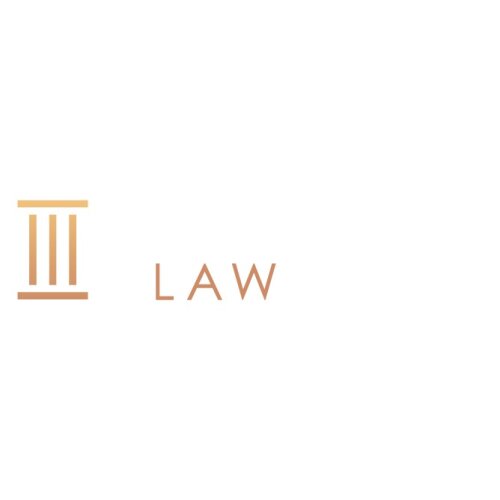Best Arrests & Searches Lawyers in Sri Lanka
Share your needs with us, get contacted by law firms.
Free. Takes 2 min.
Or refine your search by selecting a city:
List of the best lawyers in Sri Lanka
About Arrests & Searches Law in Sri Lanka
Arrests and searches in Sri Lanka are governed by several key pieces of legislation, primarily the Code of Criminal Procedure Act, the Police Ordinance, and the Constitution of Sri Lanka. The legal framework is designed to ensure both national security and the protection of individual rights. Arrests can typically only be made based on a warrant, although there are exceptions in cases where an individual is caught in the act of committing a crime. Searches generally require a warrant, but there are circumstances under specific laws where warrantless searches may be conducted.
Why You May Need a Lawyer
Legal assistance may be necessary in various situations involving arrests and searches, such as if you have been arrested, if law enforcement officers request to search your property, if you believe your rights have been violated, or if you need guidance through the legal process following an arrest or search. A lawyer can provide expertise on the legality of the actions taken, represent you in court, and help protect your rights throughout the legal proceedings.
Local Laws Overview
Key aspects of Sri Lanka's laws relevant to arrests and searches include:
- Arrest with and without Warrant: The Code of Criminal Procedure outlines conditions under which an arrest can be made with a warrant by judicial authorities or without a warrant by the police, particularly in urgent circumstances.
- Search Warrants: Generally required for searches of private property, except in exigent circumstances as permitted by law. The warrant must be specific in terms of the place to be searched and the items sought.
- Rights of the Arrested: The right to be informed of the reasons for arrest, to access a lawyer, and to be presented before a magistrate within 24 hours of arrest.
- Illegally Obtained Evidence: Evidence obtained without a warrant may be inadmissible in court, with some exceptions dictated by public interest and security laws.
- Limitation of Rights: Certain rights may be curtailed under emergency regulations or anti-terrorism laws, posing unique challenges that require legal expertise to navigate.
Frequently Asked Questions
What should I do if I am arrested in Sri Lanka?
Remain calm, do not resist, and request to speak to a lawyer immediately. Ensure you are informed of the reasons for your arrest.
Do police need a warrant to arrest someone in Sri Lanka?
Generally, yes. However, there are circumstances where police can arrest without a warrant, such as when a person is caught in the act.
Can my home be searched without my consent or a warrant?
No, typically a warrant is required to search private property. Exceptions exist under specific laws, particularly during emergencies.
What rights do I have if I am detained by the police?
Rights include the right to be informed of charges, the right to remain silent, the right to legal counsel, and the right to contact family.
How long can the police detain me without charging me in Sri Lanka?
You must be brought before a magistrate within 24 hours of arrest unless under extraordinary legal circumstances.
Is it illegal for the police to interrogate me without a lawyer present?
No, but it is your right to request and have a lawyer present during questioning.
Can I refuse a search if the police do not have a warrant?
Yes, you can refuse. However, it is advisable to follow any lawful orders and seek legal advice immediately.
What happens if the evidence against me was obtained illegally?
Illegally obtained evidence may be challenged in court and could potentially be deemed inadmissible.
Can foreigners be subject to the same arrest and search laws as citizens?
Yes, foreigners in Sri Lanka are subject to the same laws but may face additional considerations related to immigration status.
What is the process for filing a complaint about unlawful police conduct?
A complaint can be filed with the Human Rights Commission of Sri Lanka or through legal proceedings in court.
Additional Resources
For further assistance, consider reaching out to or reviewing resources from the following:
- Human Rights Commission of Sri Lanka: Advocates for and investigates human rights abuses.
- Legal Aid Commission of Sri Lanka: Offers free legal services to those in need.
- Sri Lanka Police Department: Provides public information and guidance on procedures and laws.
Next Steps
If you believe you require legal assistance regarding arrests or searches in Sri Lanka, consider taking the following steps:
- Contact a qualified criminal lawyer in Sri Lanka to discuss your case.
- Gather and organize any documents or evidence relevant to your arrest or search.
- If detained, insist on your right to contact a lawyer and inform your family.
- If you believe your rights have been violated, consider filing a formal complaint with the relevant authorities or through your legal representative.
Lawzana helps you find the best lawyers and law firms in Sri Lanka through a curated and pre-screened list of qualified legal professionals. Our platform offers rankings and detailed profiles of attorneys and law firms, allowing you to compare based on practice areas, including Arrests & Searches, experience, and client feedback.
Each profile includes a description of the firm's areas of practice, client reviews, team members and partners, year of establishment, spoken languages, office locations, contact information, social media presence, and any published articles or resources. Most firms on our platform speak English and are experienced in both local and international legal matters.
Get a quote from top-rated law firms in Sri Lanka — quickly, securely, and without unnecessary hassle.
Disclaimer:
The information provided on this page is for general informational purposes only and does not constitute legal advice. While we strive to ensure the accuracy and relevance of the content, legal information may change over time, and interpretations of the law can vary. You should always consult with a qualified legal professional for advice specific to your situation.
We disclaim all liability for actions taken or not taken based on the content of this page. If you believe any information is incorrect or outdated, please contact us, and we will review and update it where appropriate.
Browse arrests & searches law firms by city in Sri Lanka
Refine your search by selecting a city.














